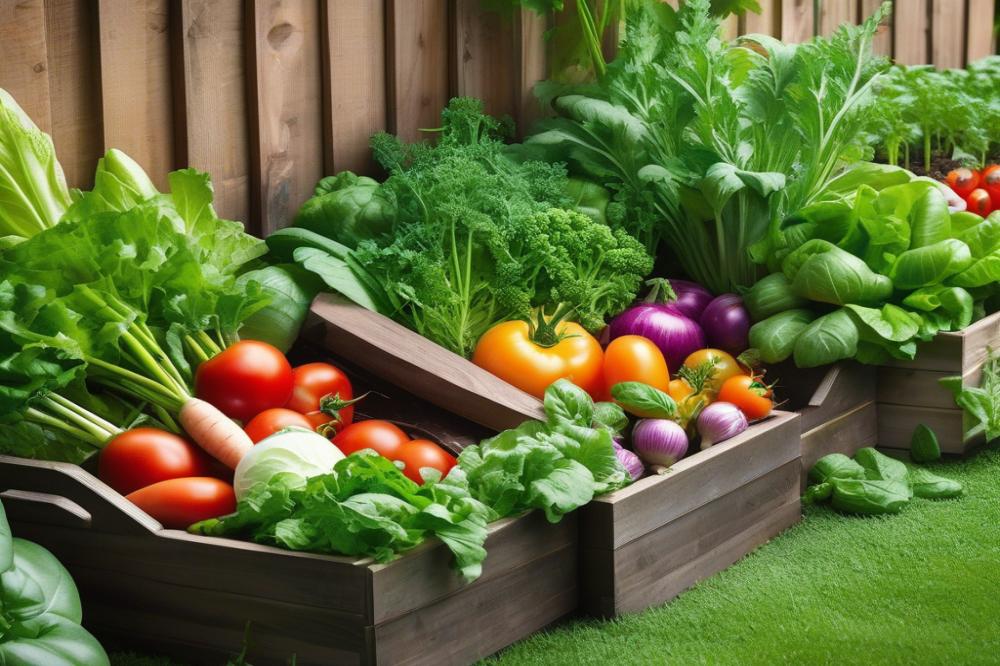Fertilizing olive trees: An Overview
olive trees hold significant value in both agriculture and cuisine. Their fruits are a staple in Mediterranean diets, offering tasty olives and high-quality olive oil. Beyond their culinary importance, these trees symbolize tradition and resilience in many cultures. Proper care is essential to achieve optimal growth and maximize harvests.
Understanding fertilization methods is crucial for promoting healthy tree growth. Olive trees have specific nutrient requirements that must be met to thrive. conventional fertilization typically includes chemical fertilizers, which can provide immediate nutrients to the plants. However, relying solely on these can lead to soil health issues over time.
On the other hand, many farmers are turning to Organic Methods. These approaches use natural materials, such as composting and mineral supplements, to enrich the soil. Organic fertilizers not only support plant nutrition but also improve long-term soil structure. Sustainable agriculture practices are increasingly making headlines as more people seek to balance productivity with environmental care.
Choosing between these methods can be a challenge for growers. Each has its advantages and drawbacks. conventional fertilization often delivers quick results, but it may harm soil biology. Meanwhile, Organic Methods may be slower to show results, yet they protect the ecosystem.
No matter the approach, the goal remains the same: to nourish olive trees effectively. The health of the trees directly impacts fruit quality, yield, and ultimately, the delight of consumers. Understanding the nuances of fertilization can empower growers to make informed decisions.
Fertilizing Olive Trees: Understanding Nutrient Requirements

Olive trees need specific nutrients to thrive. These plants prefer well-balanced nutrition for strong growth and fruit production. Essential nutrients for their health include nitrogen, phosphorus, and potassium. Additionally, calcium, magnesium, and sulfur also play crucial roles.
Macronutrients and Micronutrients Overview
Macronutrients are required in larger quantities. Nitrogen encourages vigorous foliage growth. Phosphorus supports root development and flowering. Potassium helps with fruit quality and resistance to diseases. On the other hand, micronutrients are needed in smaller amounts. These include iron, manganese, zinc, copper, molybdenum, and boron. Each of these elements contributes to various physiological processes in the olive tree.
Soil Health and Its Impact on Nutrient Availability
Soil health significantly influences how well nutrients are available. Healthy soil supports beneficial microorganisms that aid in nutrient absorption. Organic fertilizers, like compost, can improve soil structure and fertility. By using composting techniques, growers can create a nutrient-rich environment. Conventional fertilization methods often rely on mineral supplements. These can quickly correct deficiencies but may not sustain soil life long-term.
For successful olive tree care, it’s vital to understand these nutrient needs. Regular soil testing can help determine what nutrients are lacking. This practice informs the types of fertilizers to apply. Combining both organic and conventional methods can lead to sustainable agriculture. With a well-rounded approach, olive tree growth can be enhanced for better yields.
Conventional Fertilization Methods

Conventional fertilization refers to the use of synthetic products to boost soil fertility. Many farmers favor this approach for its immediate results. Understanding the nutrient requirements of olive trees is crucial to effective olive tree care. When grower demands are high, some choose mineral supplements as a quicker fix for nutrient deficiencies.
Types of Mineral Supplements
Various types of mineral supplements are available for olive trees. These primarily include nitrogen, phosphorus, and potassium. Nitrogen supports lush foliage, while phosphorus encourages flowering and fruiting. Potassium plays a vital role in overall tree growth and health. Some fertilizers might contain micro-nutrients, which are also important, albeit in smaller amounts. Selecting the right combination of these minerals can lead to increased yield and healthier trees.
Application Methods and Timing
Timing and method of application can significantly influence the results. Foliar spraying offers a way to deliver nutrients directly to the leaves. This method allows for rapid absorption. Soil application, on the other hand, integrates the nutrients into the ground. This can be accomplished through traditional broadcasting or banding. Regular soil tests can guide the timing of application, thus optimizing plant nutrition. Ideally, the best times for fertilization are in early spring or fall when trees are most receptive.
Potential Drawbacks of Conventional Methods
There are some drawbacks associated with conventional methods. Continuous use of synthetic fertilizers can degrade soil health over time. This can eventually lead to diminished returns in future crops. Additionally, the reliance on mineral supplements can cause environmental concerns. Runoff from treated fields may pollute nearby water sources. Farmers need to be aware of the potential impact on local ecosystems. Such factors could impede the principles of sustainable agriculture, which aim for balance rather than reliance solely on chemicals.
Organic Fertilization Methods

Organic fertilizers are natural substances that improve soil health and provide plants with essential nutrients. They play a significant role in sustainable agriculture. These fertilizers can enhance the overall well-being of olive trees while minimizing the impact on the environment. Many gardeners prefer organic options to support tree growth without relying on synthetic chemicals.
Benefits of Using Organic Fertilizers in Olive Tree Care
Using organic fertilizers offers various advantages. First, they improve soil structure and fertility. Healthy soil can hold moisture better and foster beneficial microorganisms. Secondly, organic options help maintain the balance of nutrients required for olive trees. They also slow down nutrient release. This slow release means that plants receive nourishment over time instead of all at once, which can be more beneficial for plant nutrition.
Examples of Organic Fertilizers
Several types of organic fertilizers are commonly used in olive tree care. Composting is one of the best methods, allowing you to recycle kitchen scraps and yard waste. Manure from livestock is another excellent choice. It provides a nutrient boost. Green manure, which involves covering crops grown specifically to be tilled back into the soil, can also enhance soil fertility.
How to Create a Nutrient-Rich Compost for Olive Trees
Creating compost is a straightforward process. Start by gathering organic materials such as fruit and vegetable scraps, leaves, and grass clippings. Avoid meat and dairy to prevent odors. Mix brown materials like dried leaves with green materials like grass clippings to create a balanced compost pile. Keep the pile moist but not soggy. Turning the compost regularly helps aerate it and speeds up decomposition. After several weeks to months, you’ll have a dark, crumbly compost ready to nourish your olive trees.
Integrating Soil Health and Fertilization
Maintaining soil health is crucial in olive cultivation. Healthy soil promotes better growth and fruit production. Poor soil can limit the nutrient availability that olive trees need. A balanced approach to fertilization supports the plant’s nutrition requirements and enhances tree growth.
Techniques to Enhance Soil Fertility and Structure
Several techniques can improve soil fertility and structure. One effective method is composting. Adding organic matter increases microbial activity. This, in turn, enriches the soil with essential nutrients. Additionally, regular tilling can help aerate the soil. Proper aeration lets roots breathe and encourages deep growth.
Cover Crops and Their Role in Maintaining Soil Health
Cover crops play a significant role in preserving soil health. These plants cover bare soil and prevent erosion during off-seasons. They also fix nitrogen in the soil, reducing the need for synthetic fertilizers. Furthermore, certain crops can enhance soil organic matter. This added richness helps retain moisture beneficial for olive tree care.
Balancing Organic and Conventional Methods for Sustainable Agriculture
Combining organic and conventional fertilization strategies can lead to sustainability. Organic fertilizers like compost and green manure are beneficial but might take time to show effects. Conventional fertilization can provide quick nutrient boosts, like using mineral supplements. Finding a balance between these methods can meet both immediate and long-term needs. Sustainable agriculture involves understanding the specific nutrient needs for olive trees, ensuring the soil remains fertile for future generations.
Monitoring and Adjusting Fertilization Practices
Soil testing plays a crucial role in developing a good fertilization strategy. By analyzing nutrient levels in the soil, growers can determine what nutrients are present and what is lacking. This tailored approach is essential for providing the specific nutrient requirements of olive trees.
Nutrient deficiencies can show up in various ways. Leaves may turn yellow or develop spots when plants lack certain minerals. Stunted growth is another signal that something may be off. Observing the trees regularly helps farmers catch these issues early.
When deficiencies are identified, changes in fertilization can be made. Organic fertilizers, such as compost, provide a natural way to boost soil health. For those who prefer quicker results, conventional fertilization with mineral supplements can be effective, too. Adjustments based on soil conditions and tree growth can maximize yield.
Keeping an eye on tree performance is part of solid olive tree care. Changes in weather, soil moisture, and user practices all impact nutrient needs. Regular monitoring enables growers to alter their methods, ensuring better outcomes for their crops.
Combining both organic and conventional methods can lead to sustainable agriculture practices. This strategy allows growers to enhance plant nutrition without harming the environment. By maintaining a close relationship with their land, farmers can foster healthier trees and better harvests.
Final Thoughts
Proper fertilization methods are crucial for the health of olive trees. These trees require specific nutrients to grow strong and produce high-quality olives. Understanding the nutritional needs helps farmers and gardeners achieve better yields.
Balancing organic and conventional approaches is vital in today’s agricultural practices. While organic methods promote sustainability, conventional fertilization can provide immediate results. Each method has its benefits, and the right choice often depends on individual circumstances and goals.
Many gardeners are shifting towards sustainable practices when it comes to olive tree care. Using natural fertilizers not only benefits the trees but also protects the environment. Encouraging these methods can lead to healthier ecosystems and more resilient crops.
Everyone involved in olive cultivation can contribute to this cause. Whether you choose organic or conventional methods, being mindful of our practices is the key. Together, we can maintain the health of our trees and the quality of the product they offer.



